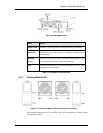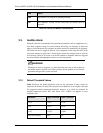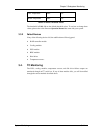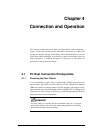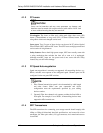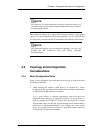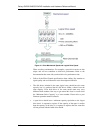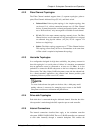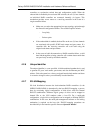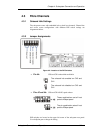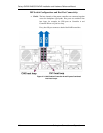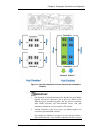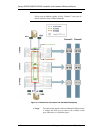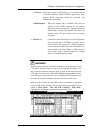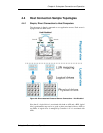
Galaxy GHDX2-2430S/R-24F4D Installation and Hardware Reference Manual
4-6 Subsystem Connection and Operation
controllers to synchronize cached data and configuration profile. When the
onboard hub is enabled by the enclosure DIP switches, the two (2) host channels
on individual RAID controllers are connected internally via bypass. This
mechanism provides access routes to a surviving controller in the event of a
single controller failure.
• Make sure you select the appropriate host port topology option through
the firmware configuration utilities. The available options include:
- Loop Only
- Point-to-point
• If the onboard hub is enabled, the host IDs on the two (2) host channels
are associated with specific WWN node names and port names. If a
controller fails, the surviving controller will avail itself using the
original node names and port names.
• In the event of cable disconnection or RAID controller failure, a valid
data link through the existing controller will continue data transfer that
was previously served by the failed controller.
4.2.6 Unique Identifier
The unique identifier is a user-specified, 16-bit hexadecimal number that is used
to generate FC ports’ node names, port names, and also the Ethernet port MAC
address. Each subsystem has a factory-assigned hexadecimal number and there
is no need to change it unless you accidentally lose the identifier.
4.2.7 ID/LUN Mapping
I/O load distribution between the dual-redundant RAID controllers (in the
GHDX2-2430R-24F4D) is determined by the host ID/LUN mapping, a process
done by associating logical configurations of disk drives with host channel
ID/LUN combinations. Different logical groups of drives can be mapped to
channel IDs or the LUN numbers under a host ID. For a multi-path
configuration, a logical drive configuration can be mapped to different ID/LUN
combinations. In this case, the multi-path management software or file locking
mechanism is required on the host side. ID/LUN mapping procedures are
described fully in the interface-specific firmware Operation Manual.



